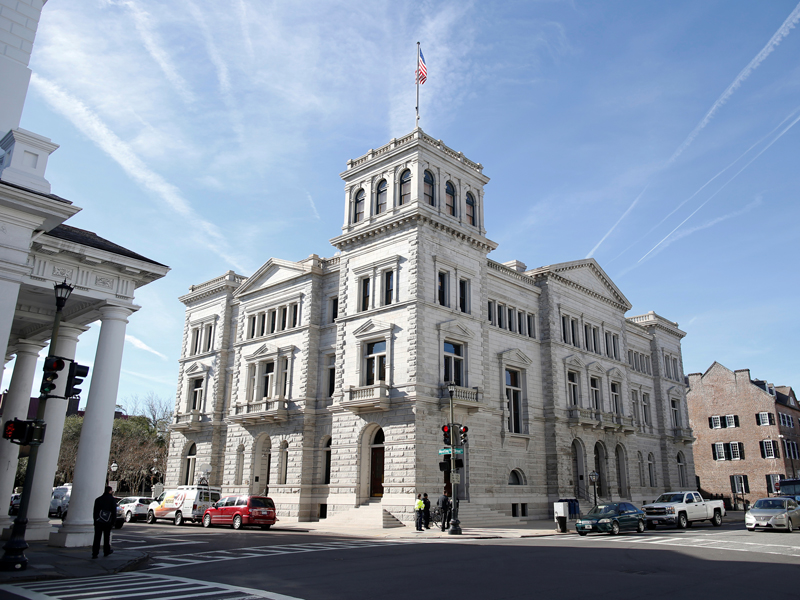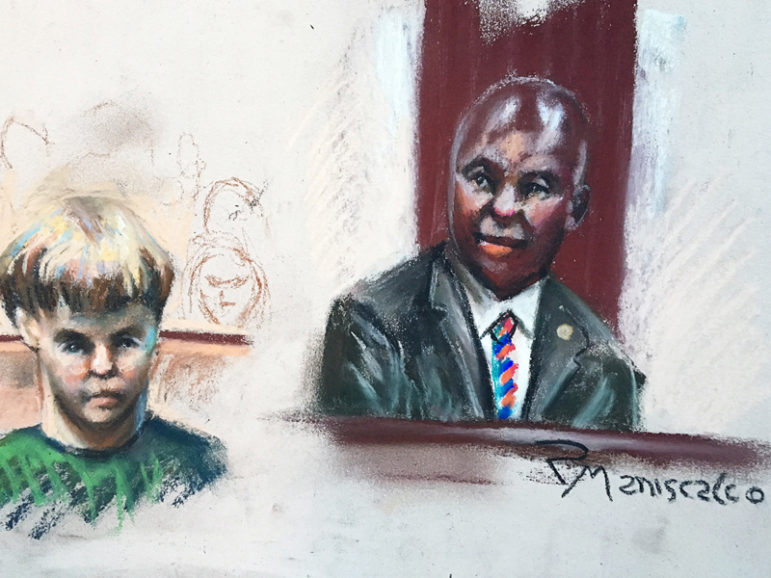CHARLESTON, S.C. (Reuters) A jury has condemned white supremacist Dylann Roof to death for killings of nine black parishioners at a Bible study meeting in a black church in 2015.
The jury’s decision on Tuesday (Jan. 10) comes one month after the same jury found Roof, 22, guilty of 33 federal charges, including hate crimes resulting in death, for the shootings at the historic Emanuel African Methodist Episcopal Church.
Roof, who represented himself and did not argue against the death penalty, showed no emotion as the verdict was read.
Prosecutors said he planned the shooting for months, intending to incite racial violence by targeting the oldest African-American congregation in the South.
“He decided the day, the hour and the moment that my sister was going to die, and now someone is going to do the same for him,” Melvin Graham, brother of shooting victim Cynthia Hurd, 54, said outside the federal courthouse in the heart of historic Charleston’s downtown district.
Roof will be formally sentenced on Wednesday. He also faces the death penalty if convicted of murder charges in a pending state trial.
Whether he was competent to serve as his own attorney will be a fundamental issue in the appeals process, Robert Dunham, executive director of the Washington-based nonprofit Death Penalty Information Center, said in a telephone interview.
Roof did not present any evidence during the penalty phase that began last week or allow jurors to hear details about his mental health. Dunham said defense lawyers likely will use the trial to show appellate judges that mental illness prevented him from adequately representing himself.
“We are sorry that, despite our best efforts, the legal proceedings have shed so little light on the reasons for this tragedy,” Roof’s lawyers, who represented him for the guilt phase, said in a statement.
Roof was unrepentant during his short closing argument, telling jurors he still felt the massacre was something he had to do.
“Anyone who hates anything has good reason for it,” he said. “I have a right to ask you to give me a life sentence, but I’m not sure what good that will do anyone.”
On June 17, 2015, Roof sat for 40 minutes with parishioners gathered for a Bible study meeting before opening fire as they closed their eyes to pray, Assistant U.S. Attorney Jay Richardson said in his final statement to jurors.
Roof pulled the trigger 75 times as he methodically killed Hurd; Clementa Pinckney, 41, the church’s pastor and a state senator; DePayne Middleton Doctor, 49; Sharonda Coleman Singleton, 45; Susie Jackson, 87; Ethel Lance, 70; Myra Thompson, 59; Daniel Simmons Sr., 74; and Tywanza Sanders, 26.
Jurors heard four days of heartrending testimony from more than 20 of the victims’ loved ones, who described their legacies of faith and the devastation wrought by Roof’s brutality.
“What’s wrong here is the calculated racism, the choice to target a church, particularly the people in a church,” Richardson told jurors. “What’s wrong here is precisely why this is a case that justifies the death penalty.”
(Additional reporting by Letitia Stein and Jon Herskovitz; Writing by Colleen Jenkins)

Photo shows the Charleston Federal Courthouse during the federal trial of Dylann Roof in Charleston, South Carolina, U.S. Jan. 10, 2017. Photo courtesy REUTERS/Randall Hill





